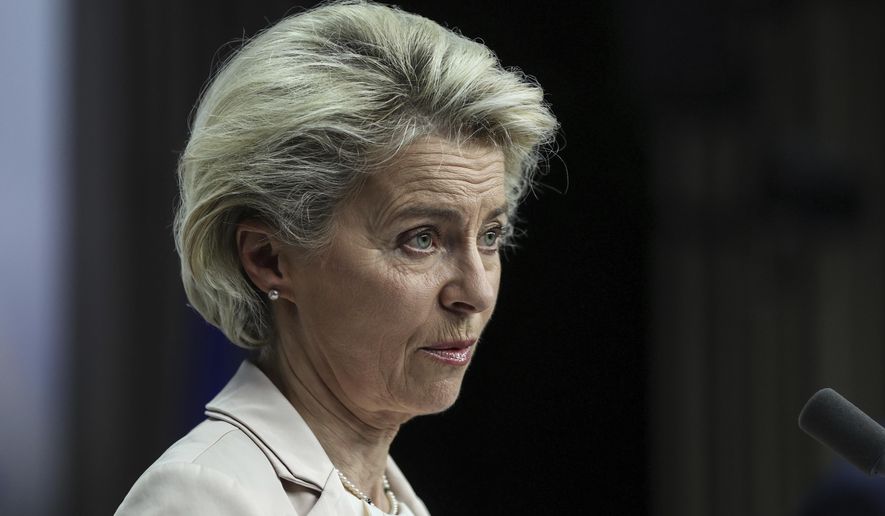European allies Thursday joined White House staff in rushing to contradict President Biden’s assertions that the West may not respond to a “minor incursion” by Russia into Ukraine and that there were divisions among the NATO allies over how to respond to the Kremlin’s aggression.
British Prime Minister Boris Johnson, German Foreign Minister Annalena Baerbock and European Union chief Ursula von der Leyen were among the clean-up crew following Mr. Biden’s unexpected and unclear comments on the Ukrainian crisis during a nearly two-hour White House press conference Wednesday.
“Be in no doubt that if Russia were to make any kind of incursion into Ukraine, or on any scale, whatever, I think that that would be a disaster, not just for Ukraine, but for Russia. It would be a disaster for the world,” Mr. Johnson told reporters in London on Thursday.
With Russia massing some 100,000 troops on Ukraine’s borders and demanding the NATO military alliance pull back across Eastern Europe, Secretary of State Antony Blinken was in Berlin seeking to unify and strengthen the Western-allied response a day ahead of talks with Russian Foreign Minister Sergey Lavrov. But Mr. Biden’s remarks appeared only to make that job harder.
Ms. Baerbock, speaking at a press conference Thursday with Mr. Blinken, said Russia should be under no illusions that the U.S. and its allies are divided and pressed Moscow to “de-escalate” the confrontation.
“Any further aggressive stance, any further aggression, would have grave consequences,” Ms. Baerbock said.
The European leaders were working in tandem with Mr. Biden’s top aides in trying to counter the president’s words from the press conference, where he appeared to suggest there would be a milder Western response to any Russian action short of a full-scale invasion of its neighbor.
“What you’re going to see is that Russia will be held accountable if it invades, and it depends on what it does,” Mr. Biden said. “It’s one thing if it’s a minor incursion, and then we end up having to fight about what to do and not do, etc.”
Given a chance to clarify his statement by another reporter, Mr. Biden pointed to possible Russian moves in cyberspace and intelligence missions against Kyiv short of war, and then volunteered that NATO’s 30 member states have some internal differences and not the united front that Mr. Blinken and others have previously proclaimed.
“There are differences in NATO as to what countries are willing to do, depending on what happens,” Mr. Biden said.
White House press secretary Jen Psaki issued a statement just after the press conference ended contradicting much of what Mr. Biden had just said.
“If any Russian military forces move across the Ukrainian border, that’s a renewed invasion, and it will be met with a swift, severe, and united response from the United States and our allies,” Ms. Psaki said.
Vice President Kamala Harris was also in damage-control mode Thursday, denying on NBC’s “Today” show that Mr. Biden had sent an unclear signal with his comments.
“The president of the United States has been very clear, and we as the United States are very clear: If [Russian President Vladimir] Putin takes aggressive action, we are prepared to levy serious and severe costs. Period,” Ms. Harris said.
Ukrainian President Volodymyr Zelenskyy, whose country stands in the Kremlin’s crosshairs, took direct exception to Mr. Biden’s word.
“We want to remind the great powers that there are no minor incursions and small nations,” Mr. Zelenskyy wrote on Twitter.
• David R. Sands can be reached at dsands@washingtontimes.com.




Please read our comment policy before commenting.